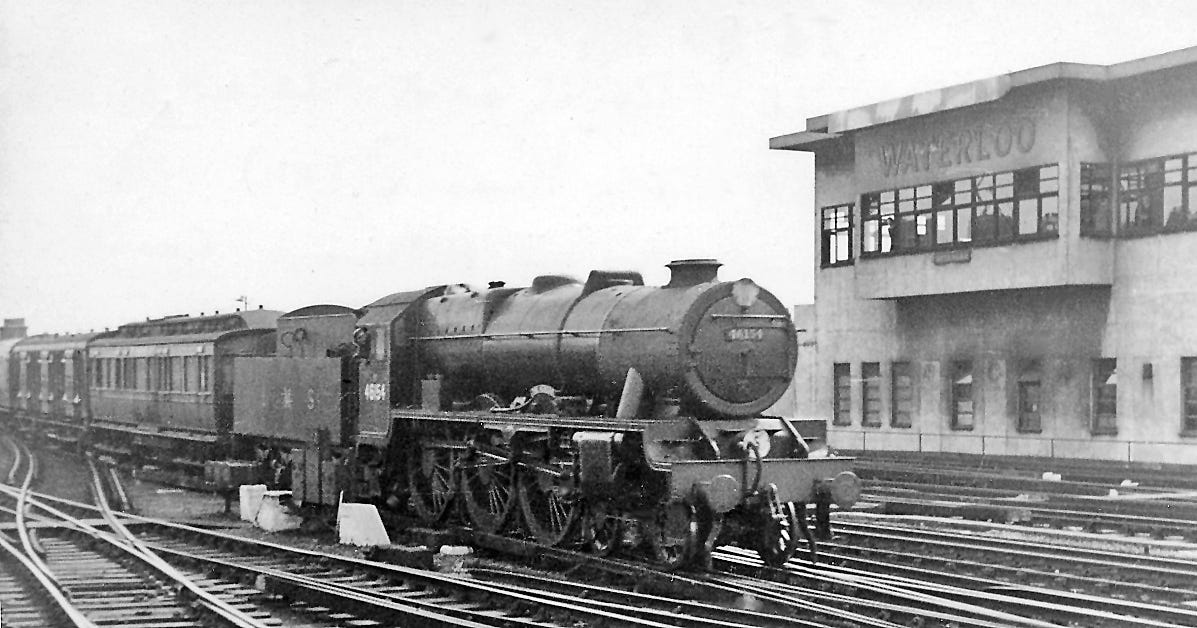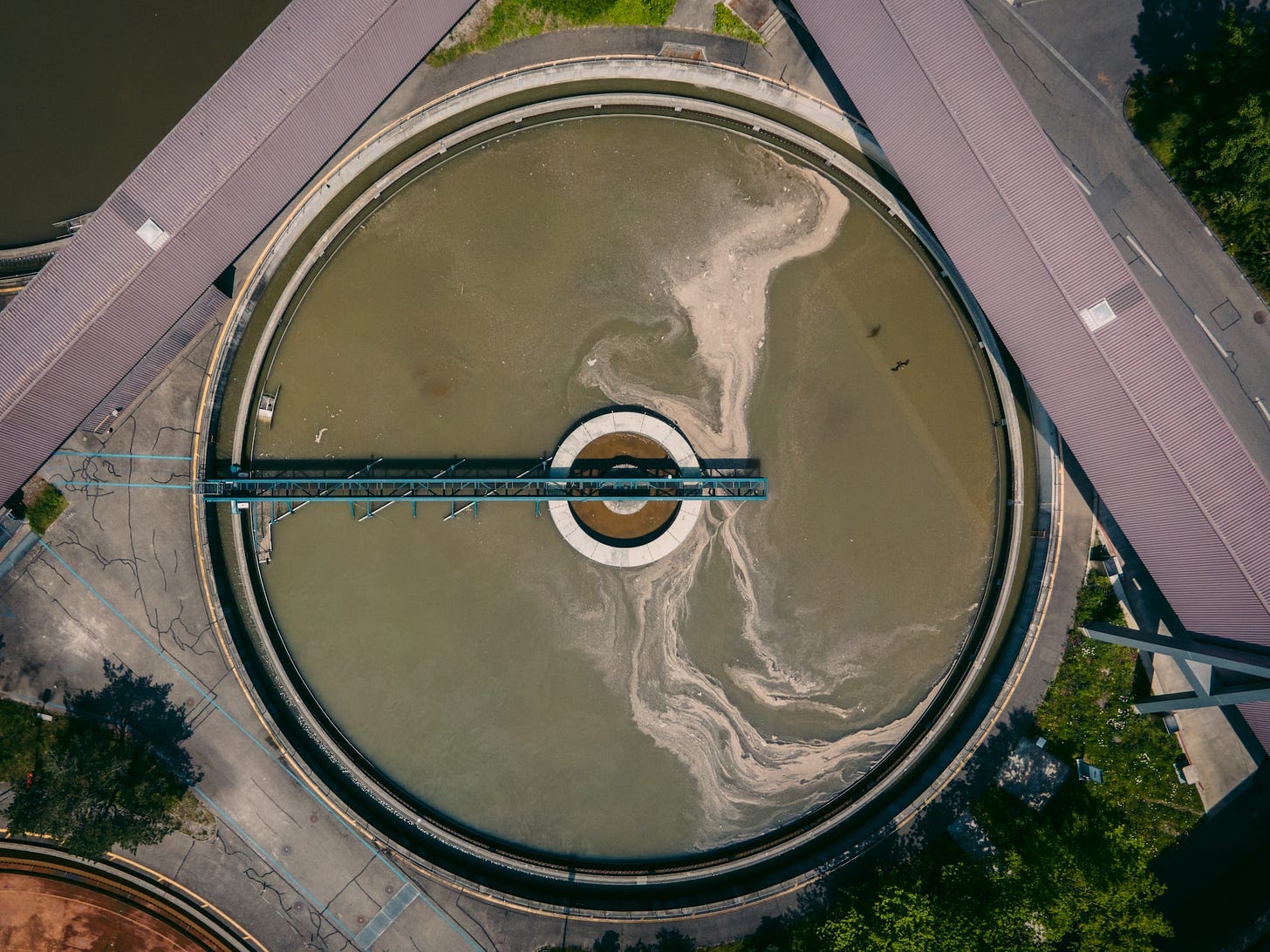Does privatisation serve people and planet?
I'm writing this post on an overcrowded train home from London that cost me a whopping £62.20, although that’s half the price of a peak time ticket so I should perhaps count myself lucky. This feels like a good time to ponder the role of privatisation in delivering key services to society. Could privatised public services be a powerful model of social enterprise and sustainable business? Or is there something about some services that makes privatisation inherently misaligned with the needs of society?
Let’s go back in time
Railways are interesting in this context, not only because they are increasingly seen as an important mode of sustainable transport, but because we tend to think of them as public infrastructure. However, the railways in the UK actually started out as pioneering private businesses who took risks and competed to offer the best service to passengers and freight customers. There was a rapid boom in railway construction running up to and through the 1840’s until the stock market bubble burst. Many railways gradually became unprofitable and the patchwork of small independent railways got consolidated into a handful of large railway companies that effectively operated monopolies on the routes that they owned. This led to many calls to nationalise the railway system in the latter half of the 1800’s. A report in 1890 called ‘The nationalisation of our railway system, its justice and advantages’ stated that;
The only valid ground for maintaining the monopoly would be the proof that the Railway Companies have made a fair and proper use of their great powers, and have conduced to the prosperity of the people. But the exact contrary is the case.
Nevertheless, the government resisted nationalisation of the railways until they were brought under government control during the First World War and then officially nationalised as British Rail after the Second World War in 1948. From then on, British Rail became seen as a public good connecting all corners of the nation, initially thriving before the shine wore off and it gradually became tired and inefficient. The government’s solution was then… privatisation.
According to the New Economics Foundation,
Between 1994 and 1997 the publicly owned British Rail was broken up and privatised amid promises of a better, cheaper service for passengers and reduced taxpayer subsidies. The idea was that private rail companies would bring in capital and business expertise which would transform the sector's performance.

So how did it pan out?
On the one hand, its undoubtedly true that we have more modern railways than we did in the nineties and that passenger numbers have more than doubled in that time, so that’s a success.
It has come at a price though. Despite the railways apparently being private, government subsidies for the railways have doubled to an average of £5 billion per year and average ticket prices are up 20%, even factoring in inflation.
This is where it gets a bit strange. Having been told that private railways would deliver “cheaper service for passengers and reduced taxpayer subsidies“, we actually now have far more expensive railways that are still funded by tax payers and yet which make profits for private shareholders. Even more bizarre is that although the Railways Act of 1993 barred the UK state from running the UK’s railways, state-owned enterprises from the Netherlands, Germany, France, Italy, and Hong Kong now all run rail companies in the UK. It seems that our government has set up an elaborate scheme for the British public to subsidise other countries.
The question that I have long had in my head is, why would they do this?
I can only think of three possible reasons:
Incompetence - The government might be incapable of running the railways efficiently or of calculating whether privatisation makes any sense
Corruption - The government might intentionally aim to transfer public wealth into private hands
Both
It’s not just trains
This model of incompetence and corruption seems to apply not just for the railways, but for all public services that operate as natural monopolies (and possibly some that don’t). The privatisation of England’s water companies is another example where I can’t help but think that both incompetence and corruption are at play.
Kings College professor Jonathan Portes was a junior civil servant involved in the privatisation of the water companies when it happened in 1989. Looking back, he describes it as “an organised rip-off”. Shares increased in value by an average of 40% on the first day of trading and since then, water companies have paid out an average of £2 billion per year to shareholders. At the same time, they’ve under invested in infrastructure and consequently have been dumping increasing volumes of sewage into the rivers and the sea. Growing pressure from environmental campaigners has finally succeeded in getting the industry to invest more in sewage infrastructure to reduce the amount of dumping, but the proposed £10 billion investment will be paid for by customers through higher water bills, not by the shareholders who cream off billions in profits every year. The government and much of the media don’t seem to see a problems with this.
It’s all about the incentives
I talked in an earlier post about profit not being inherently bad, but it does seem that in the context of public service monopolies, the motive for private shareholders to make money runs counter to the core objective of the organisation.
Legendary investor Charlie Munger famously has the mantra, “Show me the incentive and I’ll show you the outcome“. Private companies that operate public monopolies know that they are essential services with no natural competition. Contrary to what we need, they have a financial incentive to squeeze customers and the government for more money while cutting corners in order to maximise shareholder profits. They know they can get away with it because they hold nearly all the cards, allowing them to privatise the profits and socialise the losses.
Perhaps a better solution would be for our own government to be the shareholder but not the operator. This simple shift of ownership wouldn’t fundamentally change anything about these businesses other than shift the incentives, because the government as owner would have an incentive to demand both cost efficiency and quality of service. Perhaps a publicly owned private business could be a very effective model of sustainable business, keeping the incentives aligned with public need while keeping the politicians at arms length.
This seems to be the direction that our railways are heading, as failures in the privatised system have led to four train companies already falling back into state ownership. This accidental experiment will be interesting to watch in the years ahead as we should hopefully be able to get long term data comparing the privately owned train companies to the government owned train companies and see how they perform. Perhaps then we might have a clearer picture of the best model for a wider range of public service monopolies, such as transport, water and energy, to align them with the true needs of society and the environment.
It’s our business
We live in a world where there often seems to be a confusing relationship between government and the world of business. We’re told that businesses exist to make money in the marketplace and government’s job is to both encourage enterprise and to regulate it, but not to do it themselves. We’re told that politicians and civil servants can’t run businesses efficiently, and it’s used as a justification for privatising everything from the railways, water supplies and power stations, to bizarre things like traffic lights, parking inspectors and prison security. Even the Accident and Emergency Ward at my local hospital is now run by a private company. I can’t see how many of these examples make sense unless the government is either incompetent, corrupt, or both.
But perhaps there are other models that could genuinely make sense, whereby the government acts as a guardian shareholder to businesses delivering public services, or where government provides funding to socially aligned forms of business, such as Community Interest Companies, whose incentives and purpose are truly aligned with the public good. Likewise, in cases where there is not a monopoly, purpose led businesses may have an opportunity to make a valuable contribution to society by filling gaps in public services or even competing to offer something different and better. There’s a lot to ponder here and as usual I don’t claim to know the answers, but I think the question of private companies operating public services is something that doesn’t get enough attention in discussions around sustainable business and I’d love to hear your thoughts.
Now that’s my stop, so I better hop off this train.





